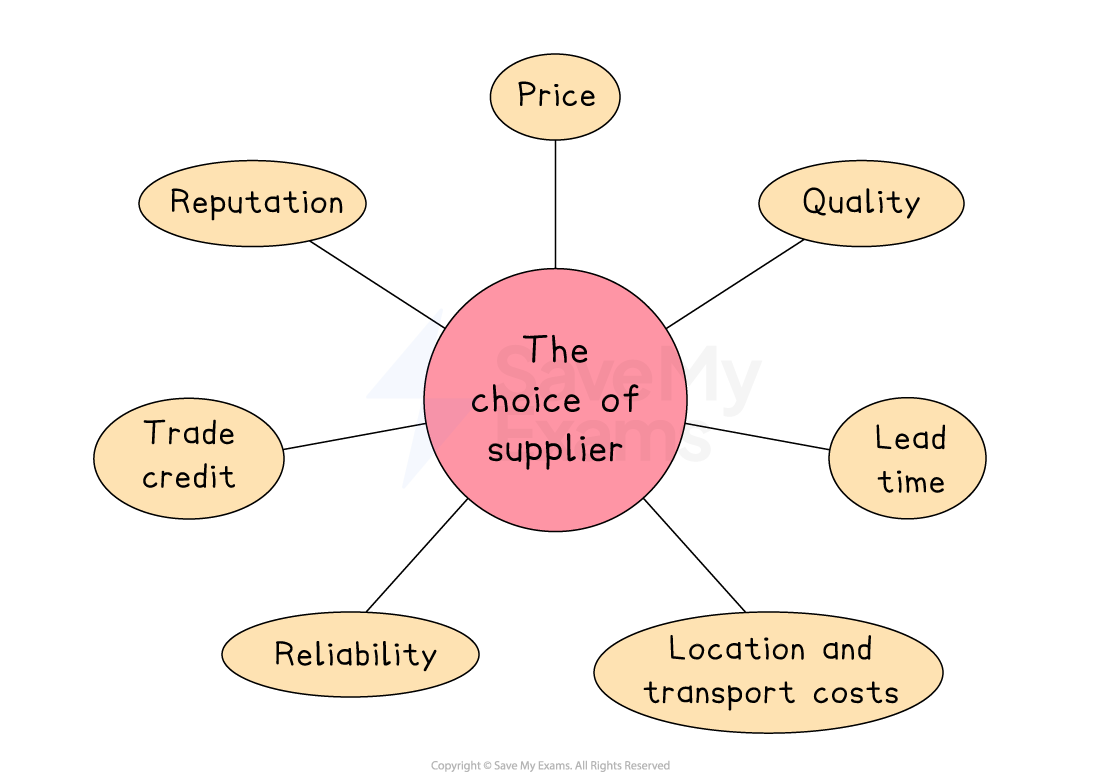Choosing a Supplier (SQA National 5 Business Management): Revision Note
Exam code: X810 75
Factors affecting the choice of supplier
When choosing a supplier, a business must think carefully about several key factors
The right supplier can help reduce costs, improve quality and keep customers satisfied
Key factors influencing the choice of supplier

Price
The price charged by a supplier affects how much it costs the business to make its products
If raw materials and components are expensive, the overall cost of production will rise
Finding a cheaper supplier can help increase profit, but very low prices may also mean lower quality, which can affect the final product
Quality
The quality of materials directly affects the quality of the final product
Poor-quality supplies can lead to faulty goods, customer complaints, and loss of reputation
Many businesses are willing to pay slightly more for high-quality, reliable materials to keep customers happy
Lead time
Lead time is how long it takes from placing an order to receiving it
Some businesses need fast delivery, especially if they use just-in-time stock control or sell perishable goods
A supplier that delivers quickly helps the business keep production running smoothly
Location and transport costs
A supplier that is close to the business helps reduce transport costs and delivery times
Local suppliers are also useful when the products are fresh or perishable, such as food items
However, some businesses import supplies from abroad if the prices or quality are better
Reliability
Suppliers must deliver the right goods at the right time
If deliveries are late or incorrect, production can stop and customers may not get their orders
Some suppliers have minimum or maximum order limits, which might not suit all businesses
Large firms often need suppliers who can handle bulk orders consistently.
Reliable suppliers help businesses maintain a steady flow of stock and avoid delays
Trade credit
Some suppliers offer trade credit, allowing a business to receive goods and pay later - for example, after 30 or 60 days
This helps the business manage its cash flow more easily
Businesses usually prefer suppliers that offer longer payment terms
Reputation
A supplier with a good reputation is more likely to provide high-quality goods and deliver on time
Using unreliable or poorly rated suppliers could damage the business’s own reputation with customers
Many businesses now look for suppliers that act ethically and protect the environment
This might include fair pay, safe working conditions and using sustainable materials
Choosing responsible suppliers can also improve the business’s brand image
Examiner Tips and Tricks
Don’t assume the cheapest supplier is the best. Businesses also consider quality, reliability, location and delivery time. Poor suppliers can cost more in delays and lost customers

Unlock more, it's free!
Was this revision note helpful?
